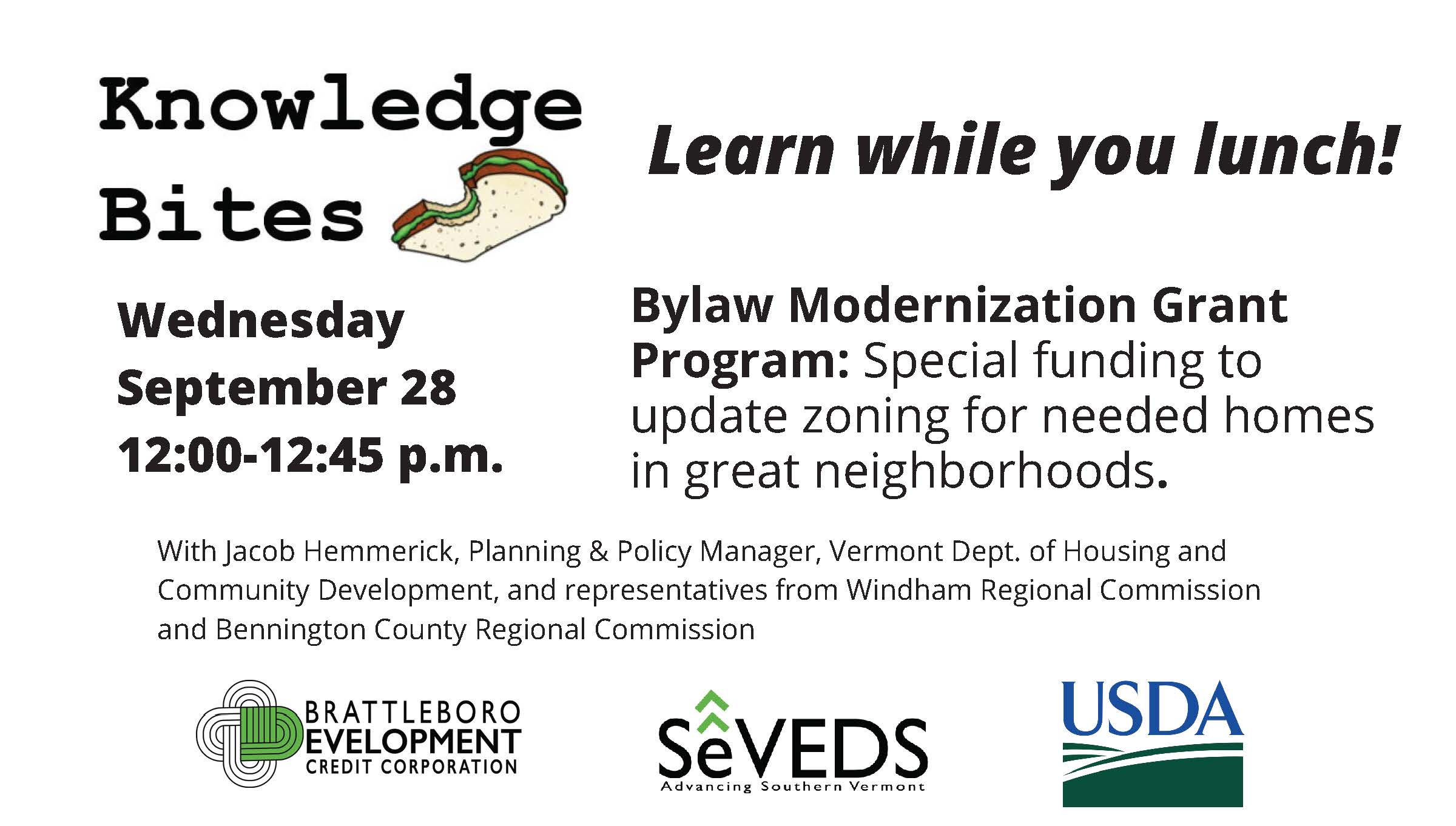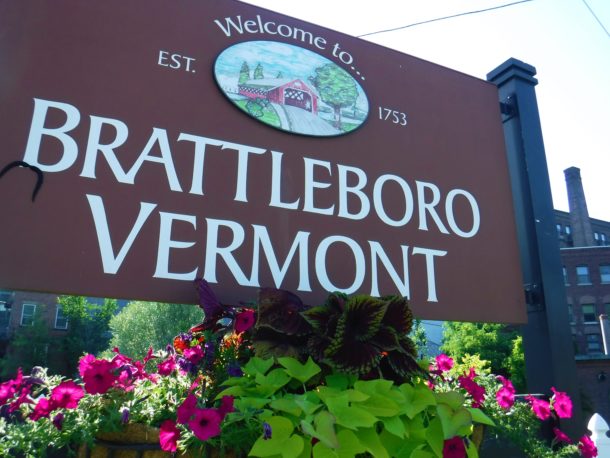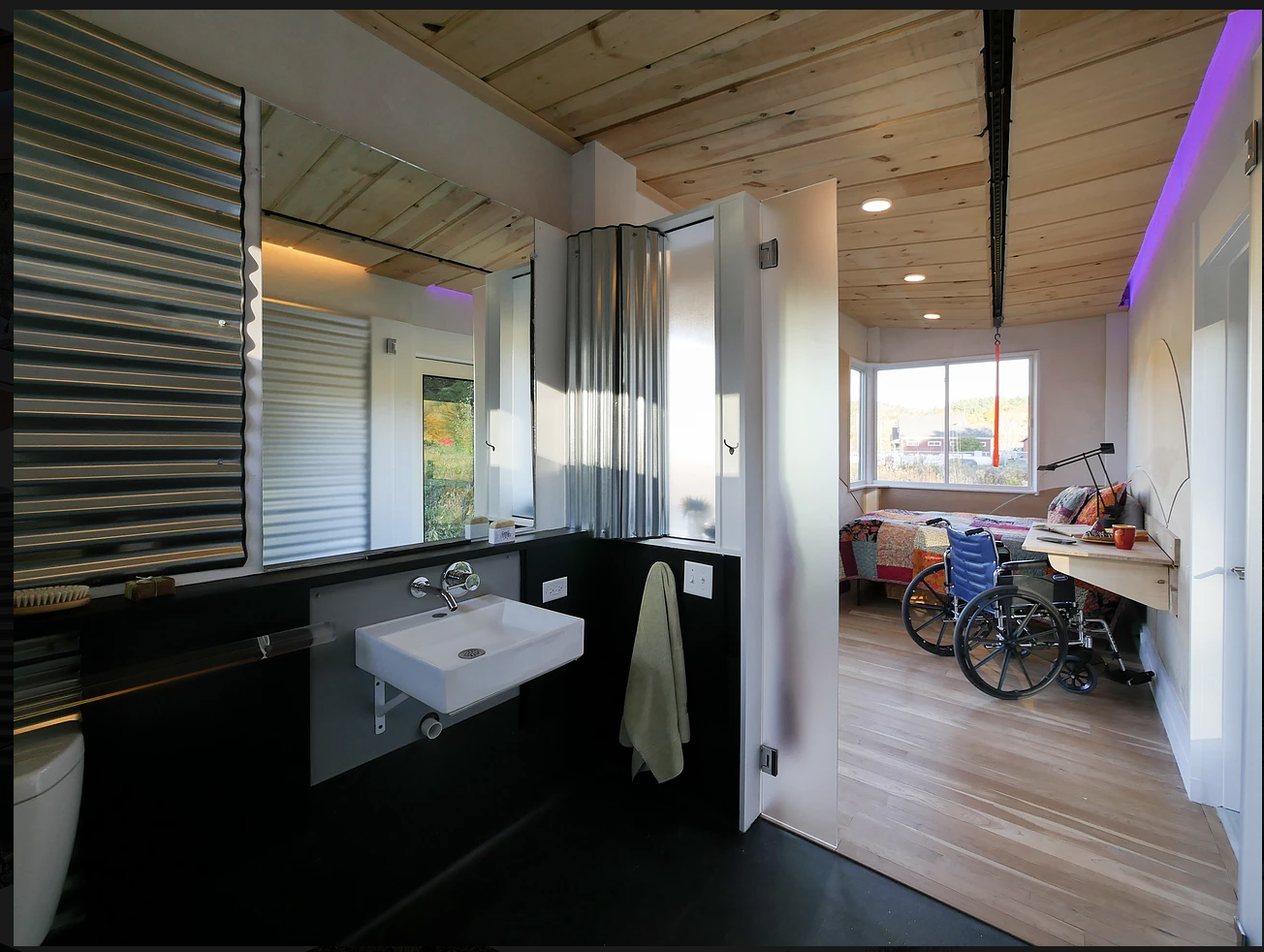
Knowledge Bites: Bylaw Modernization Grant
On Wednesday, September 28th, the Southern Vermont Economy Project (SVEP) Knowledge Bites series hosted Jacob Hemmerick, Planning and Policy Manager from the Vermont Dept. of Housing and Community Development, as well as representatives from both Windham Regional Commission and Bennington County Regional Commission, to discuss the State of Vermont’s Bylaw Modernization Grant Program. A recording of the webinar is available HERE and slides presented are available via the SVEP archives, where you will also find a full library of SVEP recordings and training materials.
Described as “Special funding to update zoning for needed homes in great neighborhoods,” the Bylaw Modernization Grant program is designed to help communities hire consultants to update their local language around land use and planning, as well as updating zoning bylaws to foster housing development. According to the ACCD website, the program’s ultimate goal is to support changes that foster “a pedestrian-oriented development pattern that increases housing choice, affordability, and opportunity in areas planned for pedestrian-oriented smart growth and in accordance with Vermont’s smart growth principles (24 V.S.A. §2791).”
Interested communities were urged to start the application process immediately, as the deadline for application is November 1, 2022.
While going over program guidelines (available HERE) Hemmerick noted that that the application is simple in format and that communities without municipal wastewater and/or sewer were also eligible to apply, as long as their project goal was in line with the program guidelines.
Following Hemmerick’s presentation, Susan Westa, Senior Planner with the Windham Regional Commission, described a current BMG-funded project in Wilmington for which WRC is acting as agent. To date, the Town has selected a steering committee made up of interested community members (including local developers, landlords, and employers) and has gone through a process of identifying community priorities and targeting possible zoning changes. With the help of planners from WRC, they will now have a series of community-wide informational meetings, before proposing changes to the zoning code that will be sent to the Wilmington Planning Commission and Select Board for review and possible approval.
SVEP program manager Meg Staloff, who was the chair of the Wilmington Planning Commission at the time of the Town’s application in Fall of 2021, stressed that, given the 24 month time frame for completing projects after receiving funding, it is not necessary for a town to have an execution plan fully formed at the time of application, but rather to be able to state goals and priorities as well as communicate clear community need. For towns without a recent Housing Needs Assessment, there is a wealth of data available at https://www.housingdata.org/.
She also recommended using Regional Planning Commissions for help in developing budgets. Towns were also urged to begin the application process immediately by getting on Planning Commission and Select Board agendas in their town in order to get municipal resolutions in support of their application.
Finally, Cat Bryars, a planner from Bennington County Regional Commission, shared the current multi-town project which her commission is working on with 9 towns in Bennington County. This project grew out of a Regional Housing Bylaw Survey carried out through a Municipal Planning Grant in 2019/2020. Bryars stressed that their study was framed around points raised in the Enabling Better Places Guide published in 2020. This guide, a collaboration between the Vermont Agency of Commerce and Community Development and Congress for the new Urbanism, suggests incremental changes that towns and Villages can consider to bring their zoning in line with desired neighborhood and housing outcomes.



